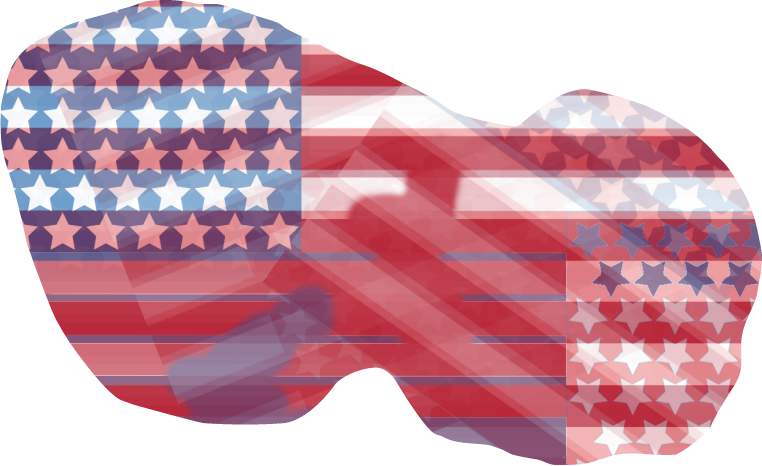Yet quibbling over repayment of the debt has occurred on multiple occasions. Some of this quibbling has caused partial government shutdowns which force affected workers to scrimp and borrow until their paychecks are restored. The 2011 stand-off over the debt ceiling caused a downgrade in the country's credit rating costing the US an extra billion dollars in debt interest. This time around, President Bidden has made it clear that he has no intention of bargaining.
While the Obama administration considered invoking the 14th Amendment, it quickly dismissed the idea. Instead, Obama agreed to spending cuts. This time, the House Republican majority has passed a bill to raise the debt ceiling that would reverse much of the Inflation Reduction Act intended to tackle climate change. Another of it's provisions would de-fund the IRS, a move that the non-partisan Congressional Budget Office said would reduce future revenue. A third provision would place additional work requirements on those already burdened by poverty and poor health.
President Biden released his 2024 budget proposal in early March. If implemented, it would raise taxes on those earning over $400,000 and roll-back tax benefits granted to the wealthy in 2017. During the final week of April the House Republicans passed a bill that would raise the debt ceiling at the expense of Democratic gains. It stands no chance of passing since the Senate won't take it up and the President will veto it. On May first, the Treasury Secretary warned that the US could reach the debt ceiling by as early as June first. Talks between the president and Congressional members are scheduled for May 9. Those talks could be rocky since there is little consensus among Republicans and Biden's firm stance leaves little room for negotiation.
Legal experts disagree about what would result if the Section 4 of the 14th Amendment were invoked. One fundamental question comes down to who besides the House has authority to force the House to do it's job of repaying debt. Some say the President could order the Treasury to continue borrowing, but others argue that the President lacks this authority.
Sadly, we budget and spend before sitting down to discuss how much we're willing to borrow. The debt ceiling carries legal weight, but so too does Section 4's requirement that we pay our debts. The legal conundrum that results when the 14th Amendment bumps up against debt ceiling legislation, provides an underhanded opportunity to whichever party wants to bludgeon an already approved budget.
The 14th Amendment has a Third Section that could make a difference in these stalemates, yet I've never seen that Section mentioned in discussions of the debt ceiling. Section 3. says one can't be a President, Senator or Congressman, etc. if one has taken an oath to support the US Constitution and has engaged in insurrection or rebellion against it. "Insurrection" generally implies violence, but "rebellion" can be simple obstruction, such as a refusal to obey an order or fulfill a duty. Repaying government debt is one such duty. Refusing to pay it is rebellion.
If the debt ceiling is breached, then those responsible will have refused to honor US debt, will have engaged in rebellion, and will, therefore, be ineligible to remain in office. But who would enforce this? Certainly not the very Congressmen that voted not to honor the debt. Perhaps the President or the Senate could force those Congressmen out of office. Perhaps not.
What could make a difference is if the American people themselves called out their errant Congressmen. Here's what I'm writing:
Dear Congressman ______,
Please be advised that if you do not honor the United States debt you will have violated Section 3 of the 14th Amendment this act of rebellion will result in your being ineligible to remain in office. Should that happen, I will urge your removal from office.
No person shall be a Senator or Representative in Congress, or elector of President and Vice-President, or hold any office, civil or military, under the United States, or under any State, who, having previously taken an oath, as a member of Congress, or as an officer of the United States, or as a member of any State legislature, or as an executive or judicial officer of any State, to support the Constitution of the United States, shall have engaged in insurrection or rebellion against the same, or given aid or comfort to the enemies thereof. But Congress may by a vote of two-thirds of each House, remove such disability.
The oath that the amendment refers to is this:
“I do solemnly swear (or affirm) that I will support and defend the Constitution of the United States against all enemies, foreign and domestic; that I will bear true faith and allegiance to the same; that I take this obligation freely, without any mental reservation or purpose of evasion; and that I will well and faithfully discharge the duties of the office on which I am about to enter: So help me God.”
Section 4.
The validity of the public debt of the United States, authorized by law, including debts incurred for payment of pensions and bounties for services in suppressing insurrection or rebellion, shall not be questioned. But neither the United States nor any State shall assume or pay any debt or obligation incurred in aid of insurrection or rebellion against the United States, or any claim for the loss or emancipation of any slave; but all such debts, obligations and claims shall be held illegal and void.






















